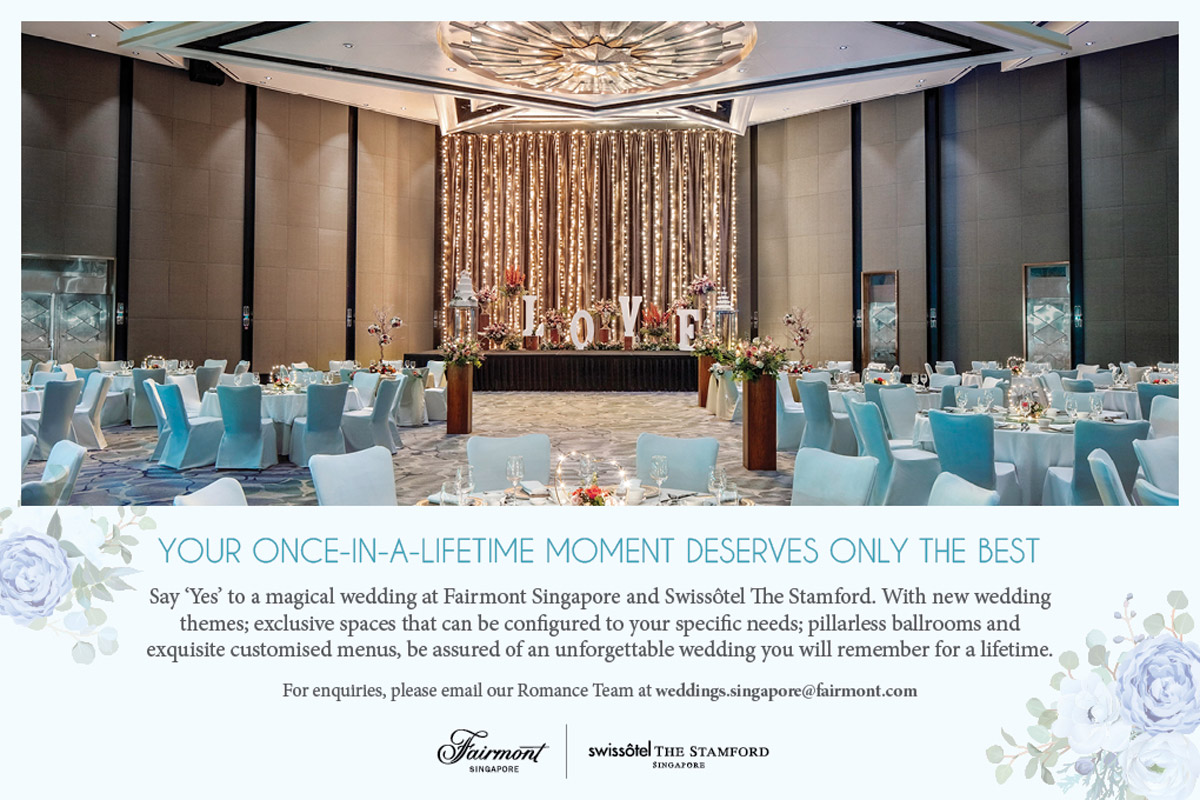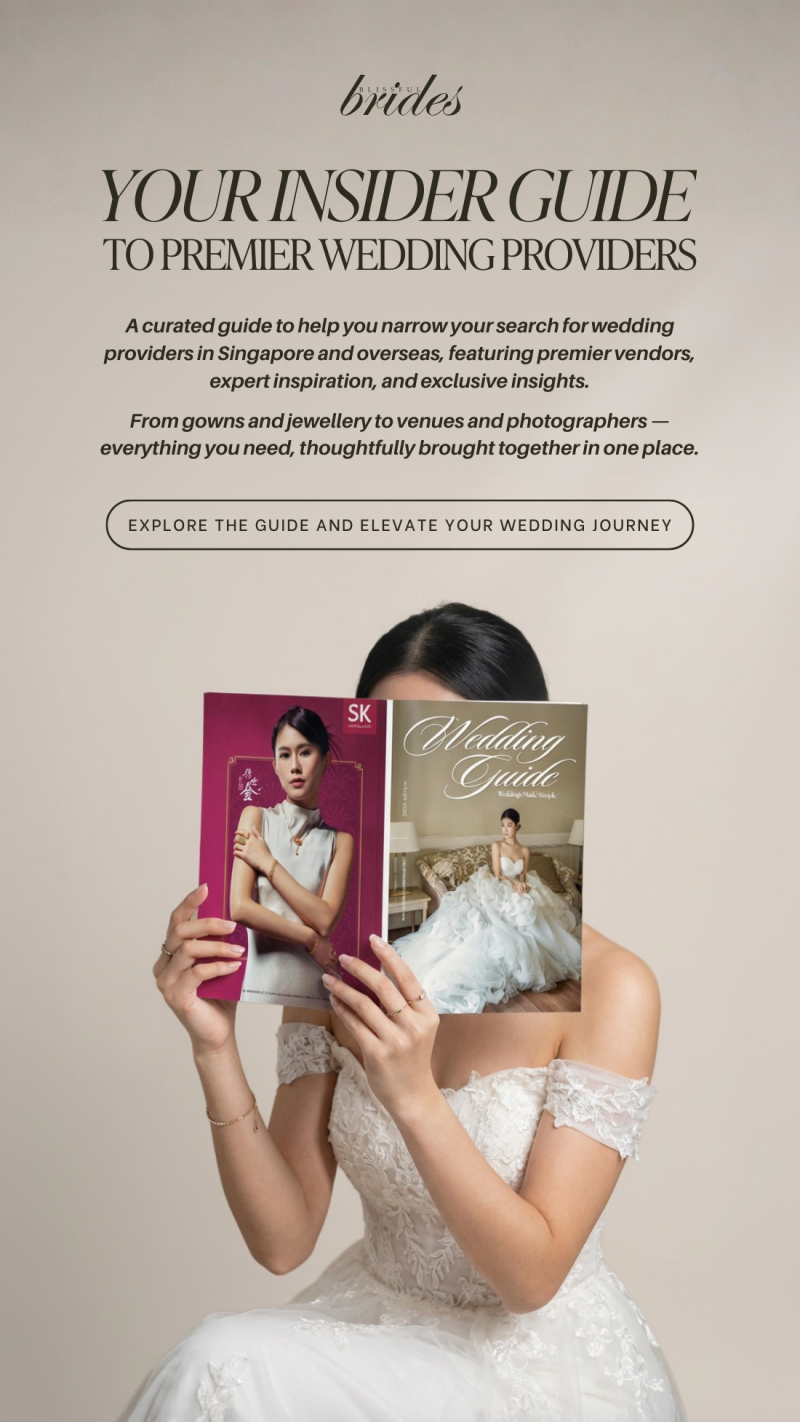5 Must-Know Chinese Wedding Traditions
2020-06-10
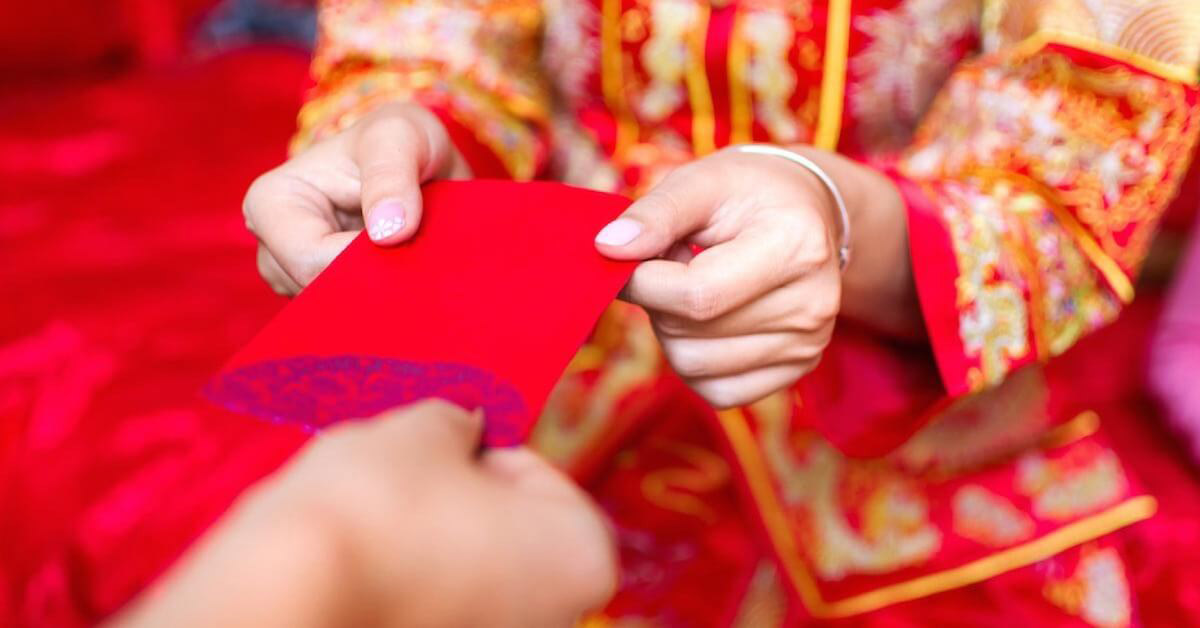
Weddings are first and foremost a way to celebrate a couple’s union. However, besides signifying a couple’s first step towards their next phase in life, weddings also serve as an avenue to celebrate culture.
If you wish to hold a traditional Chinese wedding here in Singapore, make sure you know all about these significant wedding traditions before you head down to a bridal shop for preparations.
Note: This article only serves as a general guide. For more detailed information on each dialect’s tradition, head here: https://www.blissfulbrides.sg/chinese-wedding/
1. The betrothal (Guo Da Li & Hui Li)
An important event that takes place about 2 - 4 weeks before the wedding, the groom is expected to present a basket of betrothal gifts (Guo Da Li) to the bride’s family as a formal proposal. The bride’s parents will then return gifts (Hui Li) for the groom to bring home as a show of gratitude, and this will signify that the couple is officially engaged.
An ancient custom that symbolises the groom’s promise and ability to marry and take care of his wife-to-be for life, the items will differ according to the (groom’s) dialect group. In general, they all represent good fortune, abundance, and prosperity, and may include candles, roasted pork, jewellery, traditional wedding cakes, and more.
2. Setting up the matrimonial bed (An Chuang)
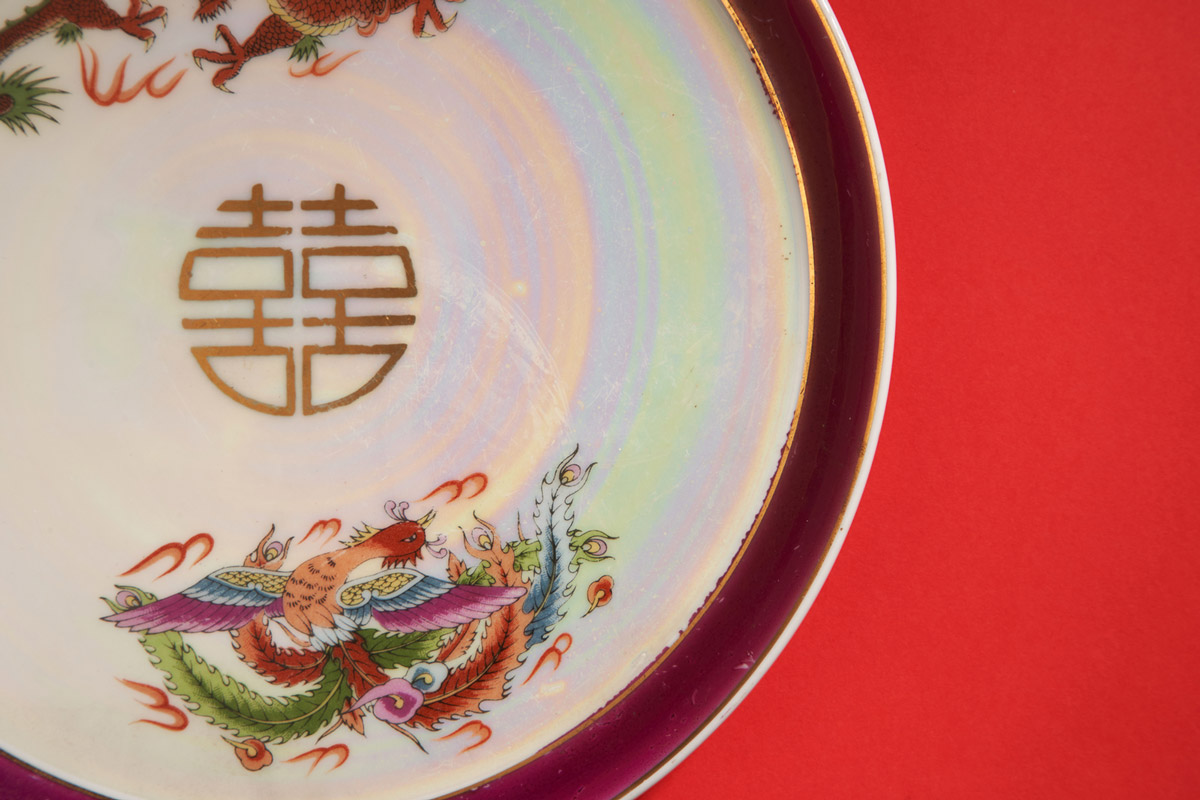
An important practice done to bless the couple with good health, offsprings, and a harmonious relationship, the matrimonial bed is typically set up a few days before the wedding, on an auspicious date.
It’s a very meticulous procedure due to its importance and will require various items such as new wedding bedsheets (in the past, a new bed is required, but many couples today are making do with just bedsheets), a pair of Prosperity Lamps, charcoal, packets of Five Colour Grains, just to name a few! Each of these items has its own importance and symbolism, and once everything is prepared, the ritual will begin and blessings will be recited.
The bed must also be left untouched once the ceremony is complete because lying on it before the wedding is believed to lead to poor health.
3. Hair combing (Shang Tou)
Hair combing is a ritual that represents the transition of the couple to adulthood. It has to be done the night before the wedding and at their respective homes, usually at 11pm (on the first Chinese hour of the wedding day).
Before the actual combing, though, the newlyweds-to-be has to wash themselves with water that has been infused with pomelo leaves as it is believed to be able to ward off evil, and then dress in a new set of underwear, pyjamas, and slippers before sitting in front of the dragon and phoenix candles.
Auspicious blessings are uttered as the parents comb their children’s hair, each phrase and stroke meant to wish the couple all the best in their marriage. Last but not least, the couple will have to eat glutinous rice balls – a representation of a complete and sweet marriage – to complete the ritual.
4. Fetching the bride (Jie Xin Niang)
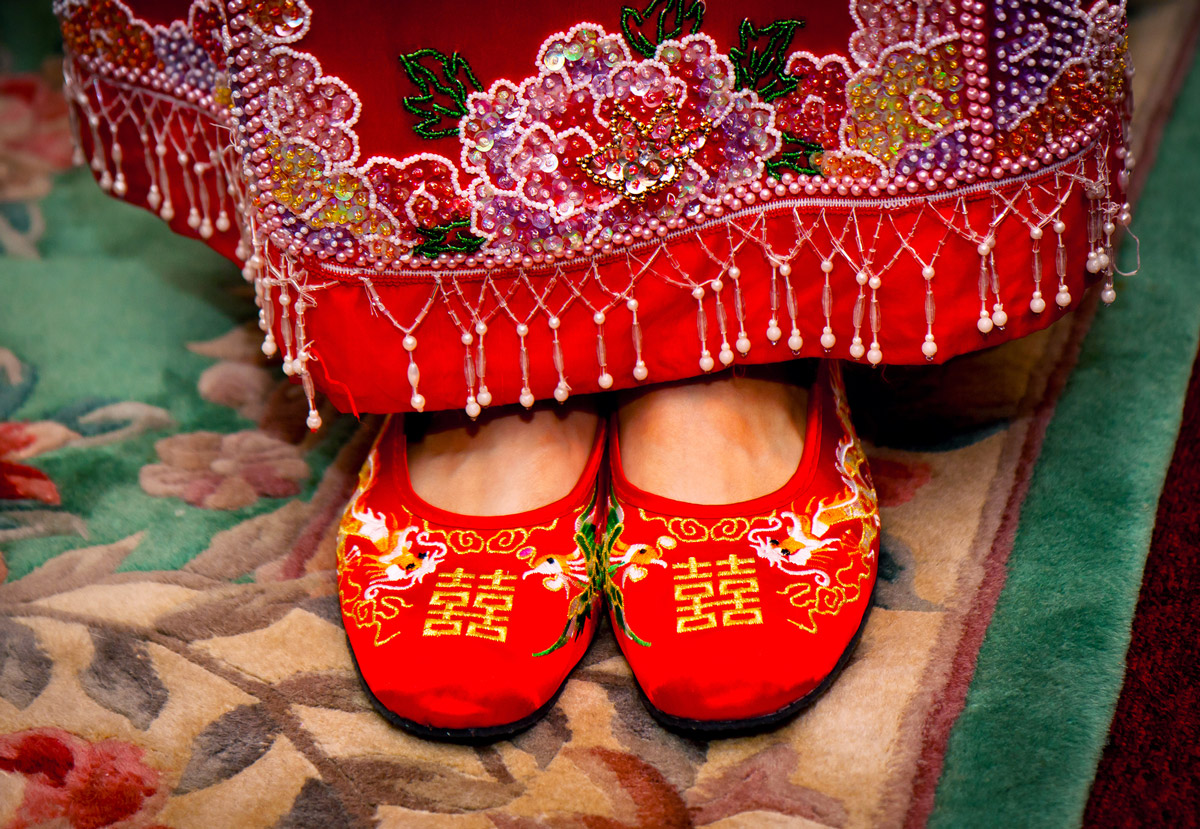
One of the highlights of a traditional Chinese wedding, fetching the bride is when the infamous gatecrashing happens. Upon arriving at the bride’s home to pick her up and bring her over to his place, the groom and his groomsmen will have to overcome challenges set by the bridesmaids to prove themselves worthy of her hand.
The groomsmen will also often prepare oranges and red packets meant to compensate the bridesmaids for their troubles and symbolise good fortune. Once everything is completed, the bridesmaids will bring the bride to her father so that he can give her away.
Before the bride leaves with the groom, she will have to prepare 3 red packets to bring along with her for her mother-in-law, and throw a foldable fan out of the car’s window to signify a fresh start. She will also have to be sheltered against negative elements with a red umbrella until she reaches the groom’s home.
5. Tea Ceremony (Jing Cha)
The tea ceremony will get underway once the bride meets the groom’s family members for the first time. A display of respect and gratitude from the couple to their elders for all their years of love and care and yet another form of blessing for the newlyweds, the couple has to serve tea to their elders and receive tea from their younger siblings.
This also symbolises that the bride and groom are officially part of the same, extended family, and a special Wedding Ceremony Tea Set (taken from the dowry) should be used to brew tea with longan and red dates to represent sweetness and fertility.
Once the tea ceremony is complete at the groom’s side, the bride will then have to change into another dress or the traditional Chinese kua before heading back to her home with the groom for another tea ceremony with her side of the family. However, an increasing number of couples today are holding the tea ceremonies together in the same venue, such as in hotel function rooms, in for ease and convenience. In such cases, the tea is often served to the groom’s side first, before serving the bride’s side.
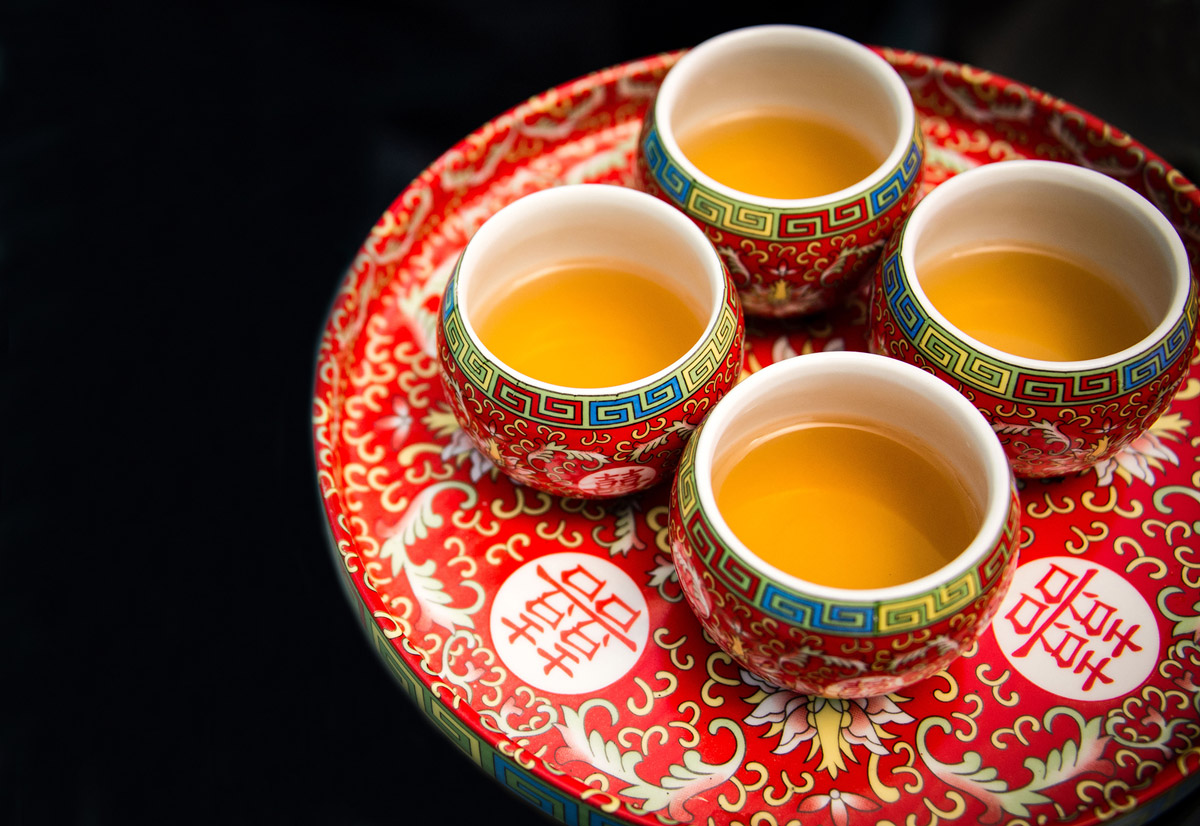
These are just some of the traditional customs that you will need to know about and partake in should you wish to host a traditional Chinese wedding. If you ever feel lost and unsure about these traditions, our Chinese wedding guide is here to help!
Shops that sell Chinese traditional wedding essentials are also more than happy to assist you with whatever you might need, and kuas are available at wedding gown rentals too – all you need to do is ask!

